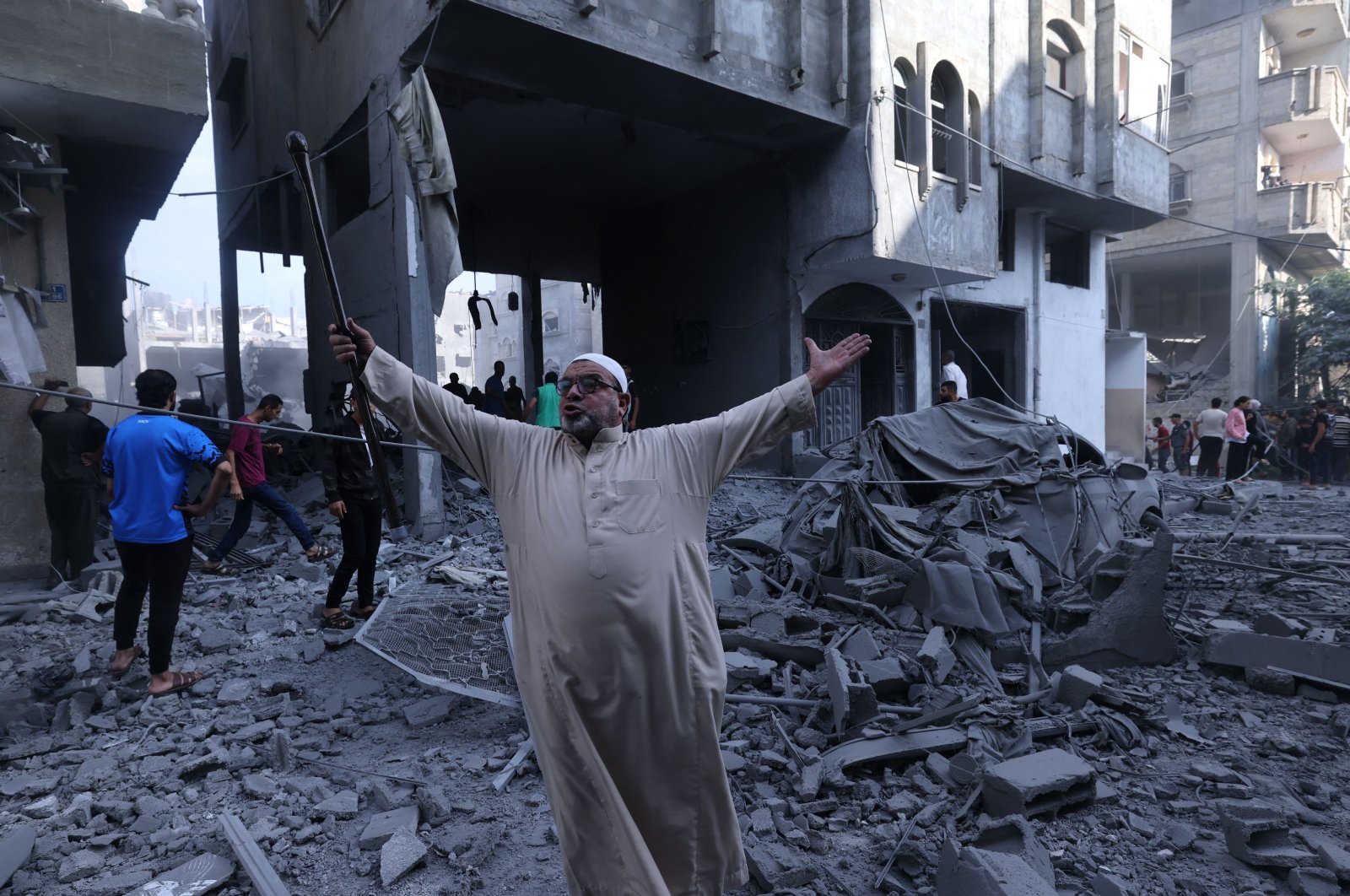
U.S. President Joe Biden is set to visit Israel on Wednesday in an apparent show of support for the country's war against Hamas which has transpired into a collective punishment of Gaza.
Washington, in the meanwhile, said Israeli Prime Minister Benjamin Netanyahu had agreed to let humanitarian aid reach besieged Gazans.
Trucks carrying vital supplies for Gaza reached the Rafah crossing in Egypt, the only access point to the enclave outside of Israel's control. A witness told Reuters some 160 trucks had left the nearby Egyptian town of Al-Arish, where they have been backed up while diplomats tried for days to open the route.
Israel has bombarded the Hamas-ruled Gaza enclave with airstrikes that have killed more than 2,800 Palestinians and driven around half of the 2.3 million Gazans from their homes. It has imposed a total blockade on the Gaza Strip, so far blocking all aid including food, fuel and medical supplies.
U.S. Secretary of State Antony Blinken announced Biden's planned visit at the end of hours of talks with Netanyahu, in which he said Netanyahu had agreed to develop a plan to get humanitarian aid to Gaza civilians.
"The president will hear from Israel what it needs to defend its people as we continue to work with Congress to meet those needs," Blinken said.
Biden would also "hear from Israel how it will conduct its operations in a way that minimizes civilian casualties and enables humanitarian assistance to flow to civilians in Gaza ..."
Washington is also trying to rally Arab states to help head off a wider regional war after Iran pledged "preemptive action" from the "resistance front" of its allies which include the Hezbollah movement in Lebanon.

Rare and risky move
After visiting Israel, Biden would travel to Jordan to meet King Abdullah, Egyptian President Abdel-Fattah el-Sissi and Palestinian Authority President Mahmoud Abbas, U.S. national security spokesperson John Kirby said.
The Israeli military claimed it had struck Hamas and Islamic Jihad targets overnight, including Hamas' headquarters and a bank used by the group. At least 49 Palestinians were killed in an overnight Israeli strike that hit homes in Khan Younis and Rafah, Gaza's Interior Ministry said.
Israel says Hamas members captured 199 hostages, while the Palestinian group said foreigners among the captives were its "guests" and would be released "when circumstances allow," while making clear it aims to swap Israeli captives for thousands of Palestinians in Israeli jails.
It released a video Monday in which a French-Israeli woman captive was shown having an injured arm treated by a medic worker. She identified herself as 21-year-old Mia Schem and asked to be returned to her family as quickly as possible.
Biden's trip is a rare and risky move, showing American backing for Netanyahu as the U.S. tries to avert a broader regional war involving Iran, its Lebanese ally Hezbollah and Syria.
As Israel plans an expected ground invasion of Gaza, cross-border clashes have intensified with Hezbollah on a second front on Israel's northern border with Lebanon.
On Tuesday, the Israeli military claimed it killed four people who tried to cross the border fence allegedly to plant explosives. Israel ordered the evacuation on Monday of 28 of its villages in a 2-kilometer-deep (1.2-mile) zone near the Lebanese border.
'All options are open'
Meanwhile, Iranian Foreign Minister Hossein Amirabdollahian told state TV that Israel would not be allowed to act in Gaza without consequences, warning of "preemptive action" in the coming hours.
"All options are open and we cannot be indifferent to the war crimes committed against the people of Gaza," Amirabdollahian said. "The resistance front is capable of waging a long-term war with the enemy."
Netanyahu threatened Iran and Hezbollah Monday that they would pay a heavy price in case of any military action in northern Israel.
As Israel masses troops on Gaza's border, it has told more than a million people in the northern half of the enclave to flee to the southern half for their safety. Hamas has told them to stay put so as to avoid a second Nakba.
While tens of thousands have fled south, the United Nations says there is no way to move so many people without causing a humanitarian catastrophe.
The United Nations says a million Gazans have already been driven from their homes. Power is out, sanitary water is scarce and fuel for hospital emergency generators is running low.
